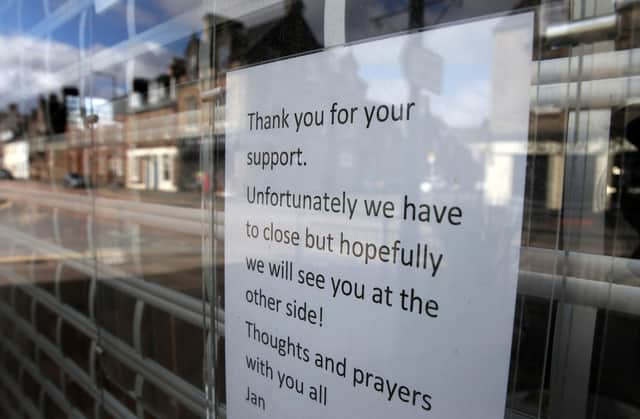SNP calls on Chancellor to close loopholes in support


Nearly one million people applied for Universal Credit in the past fortnight, figures from the Department for Work and Pensions confirmed, compared to around 100,000 in a normal two-week period.
The government has said it will guarantee 80 per cent of income for employees placed on furlough rather than laid off, as well as for 95 per cent of the self-employed.
Advertisement
Hide AdAdvertisement
Hide AdHowever, workers who began new jobs after 28 February cannot be furloughed, while those who became self-employed after April 2019 are also excluded. The UK government says restrictions are necessary to prevent fraud.
The SNP’s business spokesman Drew Hendry said: “In my own constituency, the tourism sector contributes to over a fifth of our local economy and it is well known for scaling up business capacity in March in preparation for the summer season ahead – meaning that many of my constituents are now left unemployed and without furlough support.”
Edinburgh East MP Tommy Sheppard said it was “unfair to punish workers who chose to change job or move forward in their careers before the consequences of the pandemic were known.”
Mr Sheppard, who founded the Stand comedy club, also called for staff to be allowed to close down businesses while receiving support.
“Key personnel in businesses must also be allowed to undertake such tasks to keep the business intact and in a position to bounce back once the coronavirus crisis ends,” Mr Sheppard said.
“This is particularly relevant to the cultural and entertainment sector... which, in order to survive must be able to issue refunds, re-schedule events, undertake security checks, and manage payroll.”